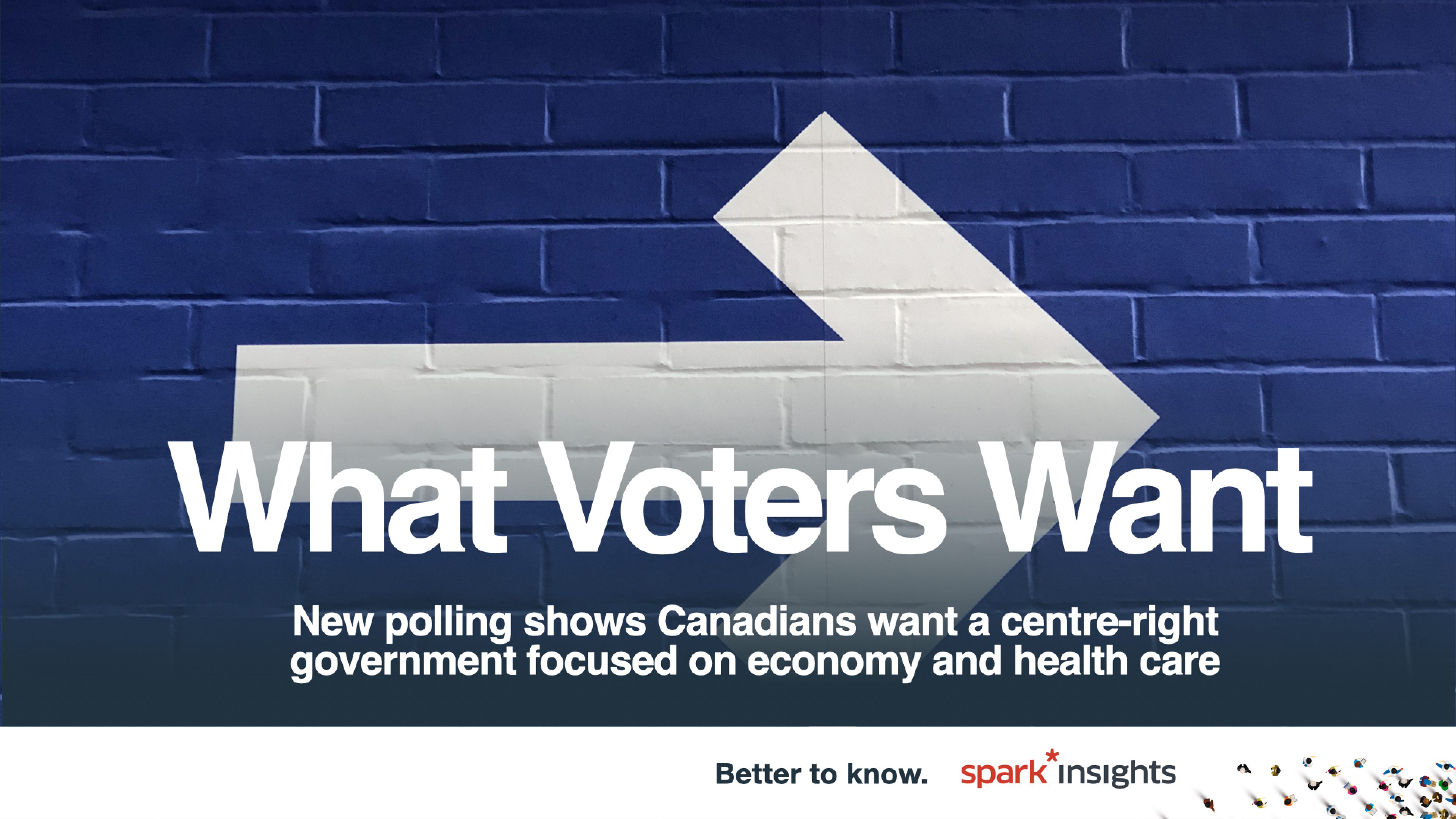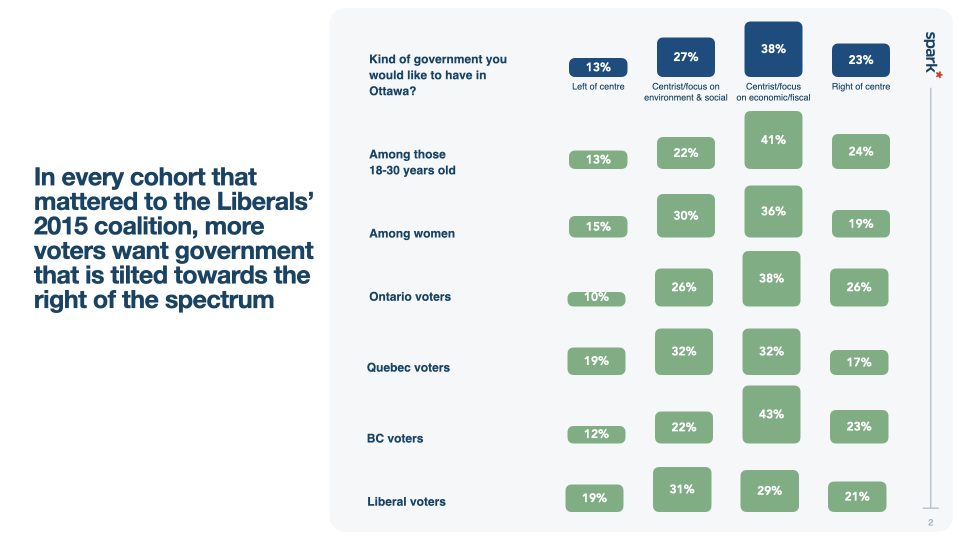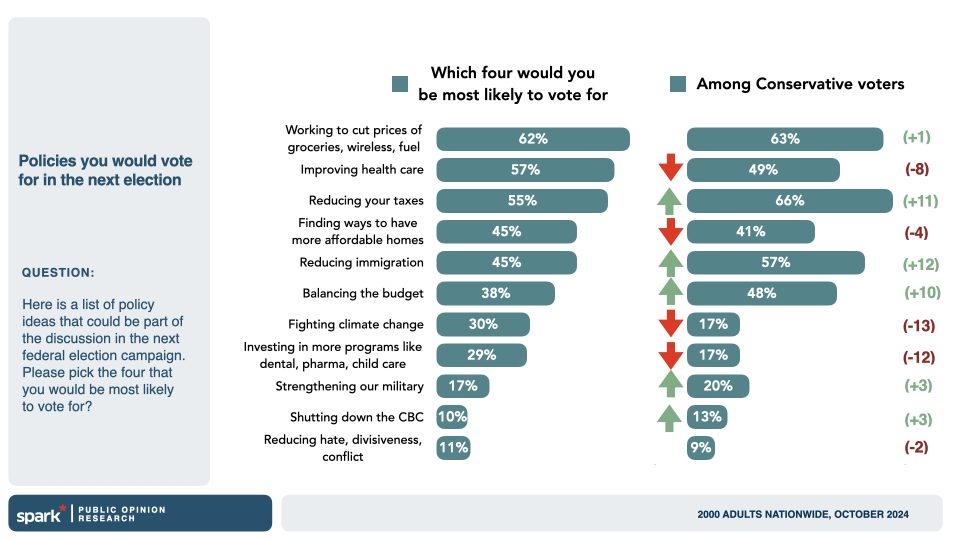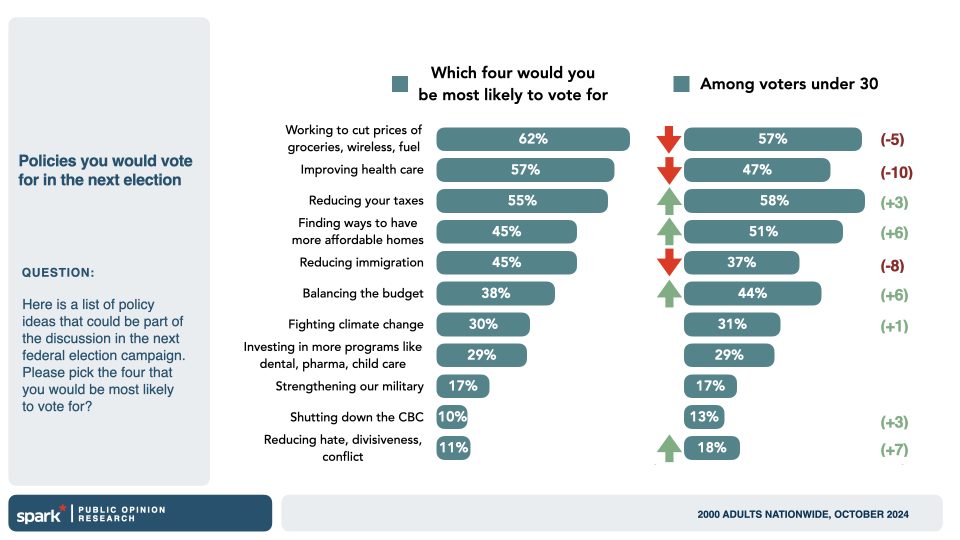Subscribe for more!
Subscribe to our newsletter for insights and articles on wide ranging issues including reputation management, branding, advertising, awareness, advocacy, and communications. You can unsubscribe anytime.
Follow us on social:

In our most recent survey, conducted between October 8-12th, among 2000 adult Canadians, we explored what kind of government Canadians want in Ottawa and what priorities matter most to them. The highlights of the findings are below.



Bruce Anderson: “On the heels of a better than originally expected outcome for the Conservative Party in BC, and with the federal Conservatives polling 22 points ahead of the Liberals in our data, it is increasingly clear that the centrist tendencies of Canadians – while they remain – are pointed more towards economic and fiscal priorities. People are struggling with the cost of living, and this is also putting a priority on reducing taxes, something which is undoubtedly fueling interest in eliminating the carbon tax (even though it would not have that expected impact).
As our past research has revealed, Canadians tend to see the Trudeau government as quite a bit further to the left than they would prefer. The preference for a centre-right style government is clear among many groups that were pivotal to the Liberals’ success in coalition building in 2015.
Conservative voters show relatively low interest in shutting down the CBC, strengthening the military, and put a greater priority than others on balancing the budget. They care less than other Canadians about fighting climate change.”
Young people – compared to historical patterns – show a greater interest in lower taxes and a balanced budget than might have been expected. This is due to a growing acceptance of the argument that more government spending tends to deliver higher cost of living because it ends up increasing taxes or inflation.
There is one other issue that bears noting here – in our research people have grown very frustrated with the health care system and see a need for more urgent reform and improvement. It is not unusual for health to be considered a high priority, but the underneath the top level finding here, we are convinced that this is a more potent issue than is usually the case.”
Fred Delorey, Northstar Public Affairs: "As Canadians face growing economic challenges, it's becoming increasingly clear that a pragmatic approach to government—one that prioritizes affordability, economic stability, and accessible healthcare—resonates across the country. People want policies that directly address their day-to-day struggles, and this sentiment is cutting across traditional political lines. It's not about ideology, but about delivering results that make life more affordable and secure for all Canadians."
spark*insights is led by Bruce Anderson, one of Canada’s leading and most experienced public opinion researchers. From polling and research to analysis and guidance, we help organizations, uncover the factors driving or influencing public perception to gain valuable insights into the shape and movement of the landscape.